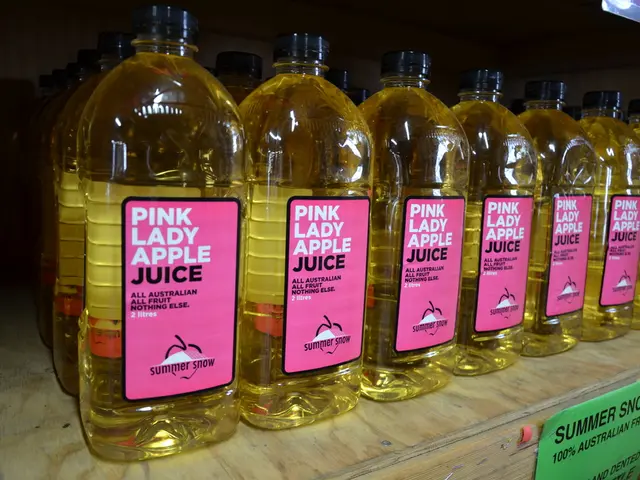Interactions of Plaquenil with Other Medications, Alcohol, and Substances
In light of recent developments, it is crucial to clarify the role and usage of hydroxychloroquine (Plaquenil) in the context of COVID-19.
Hydroxychloroquine and COVID-19: Current Recommendations
The World Health Organization (WHO) and the Centers for Disease Control and Prevention (CDC) do not advocate for the use of hydroxychloroquine in managing COVID-19, as there is a lack of clinical benefit demonstrated in multiple trials [2].
Hydroxychloroquine's Established Uses
Hydroxychloroquine remains a valuable medication for treating conditions such as malaria, rheumatoid arthritis, systemic lupus erythematosus, and chronic discoid lupus erythematosus. However, its efficacy and safety have not been established for COVID-19 [1][2].
Interactions with Other Substances
It is essential to be aware of potential interactions between hydroxychloroquine and other substances. For instance, the drug may interact with certain antacids, methotrexate, cyclosporine, digoxin, mefloquine, bupropion, and rifampin, which can affect its effectiveness or increase the risk of side effects [1].
Cannabis (marijuana) and cannabidiol (CBD) have not been specifically reported to interact with hydroxychloroquine, but certain side effects from the drug could be worsened by drinking alcohol [1]. There are no reports of food interactions with hydroxychloroquine, but taking the medication with food or a glass of milk can help reduce digestive side effects [1].
Safety Concerns
Hydroxychloroquine's known toxicity profile, including the risk of liver problems and retinal toxicity, must be considered when using the drug for its approved indications [5]. There is also evidence against using hydroxychloroquine for managing long COVID symptoms due to a lack of benefit and potential risks [3].
Vaccine and Lab Test Interactions
There haven't been any specific reports of hydroxychloroquine interacting with vaccines or lab tests [1].
Special Considerations
If you have a liver or kidney problem, Plaquenil could worsen your condition or build up in your body, increasing your risk of side effects. If you have psoriasis, Plaquenil could worsen it. It is also important to note that if you have had an allergic reaction to Plaquenil or similar drugs, your doctor will likely not prescribe Plaquenil [1].
Taking Plaquenil Safely
To minimise digestive side effects, it is advisable to take Plaquenil with food or a glass of milk. You should also avoid taking medication for indigestion at least 4 hours before or after taking Plaquenil [1].
In conclusion, hydroxychloroquine's role remains restricted to its established uses, and it should not be used as a treatment or prophylaxis for COVID-19 based on all clinically available evidence as of August 2025 [2][3]. It is always best to consult with a healthcare professional for accurate and personalised advice regarding medication use.
- While hydroxychloroquine is beneficial for conditions like malaria, rheumatoid arthritis, systemic lupus erythematosus, and chronic discoid lupus erythematosus, its efficacy and safety have not been established for managing COVID-19.
- Taking hydroxychloroquine with food or a glass of milk can help reduce digestive side effects, but interactions with certain substances, such as antacids, methotrexate, and mefloquine, must be considered.
- Hydroxychloroquine's toxicity profile, including the risk of liver problems and retinal toxicity, should be considered when using the drug for its approved indications. Furthermore, there is evidence against using hydroxychloroquine for managing long COVID symptoms due to a lack of benefit and potential risks.
- It is essential to be aware of potential interactions between hydroxychloroquine and other substances, such as some antacids, methotrexate, and cannabis or cannabidiol, as certain side effects from the drug could be worsened.
- Although there are no specific reports of hydroxychloroquine interacting with vaccines or lab tests, it is important to note that liver or kidney problems, psoriasis, or a history of allergic reactions to the drug or similar medications may affect its prescription and usage.




